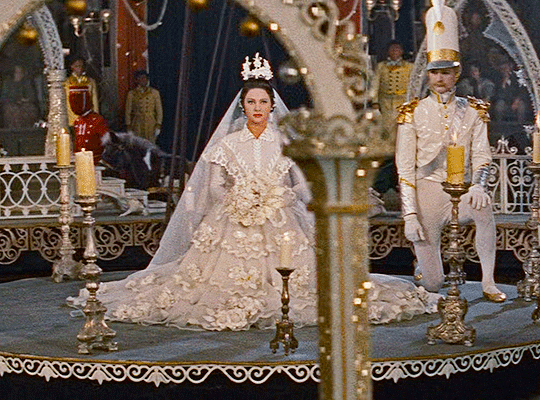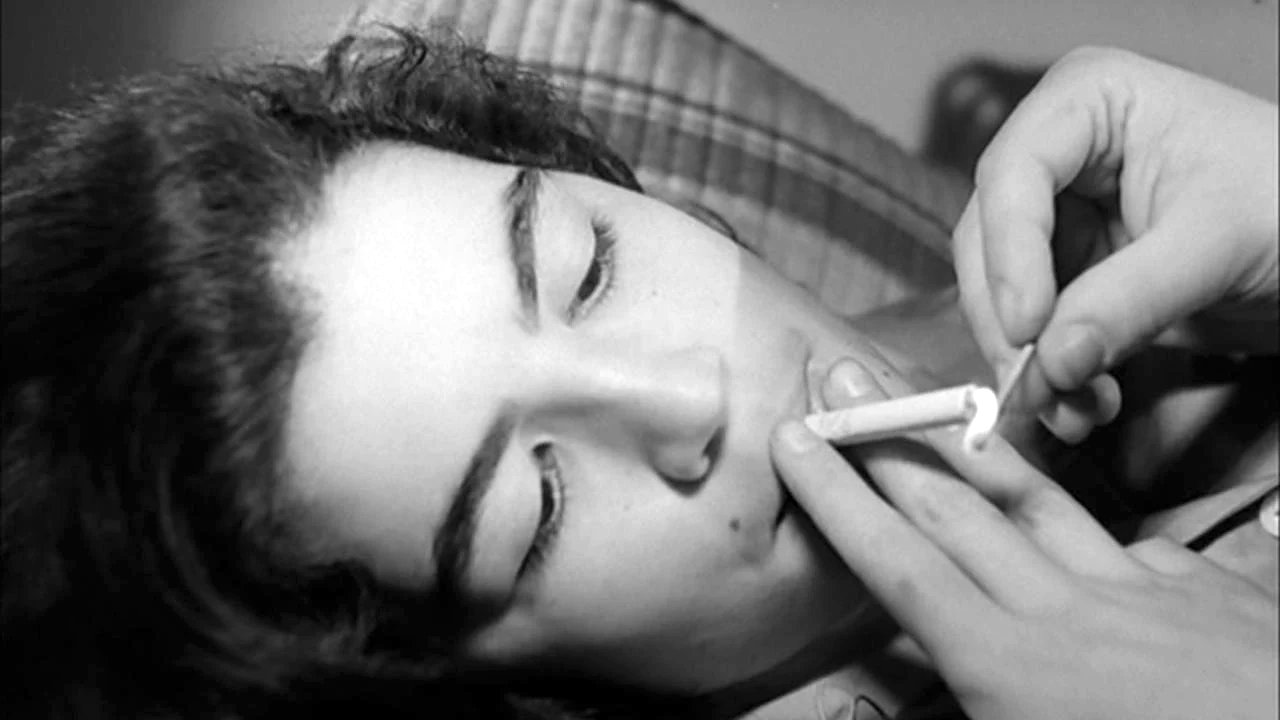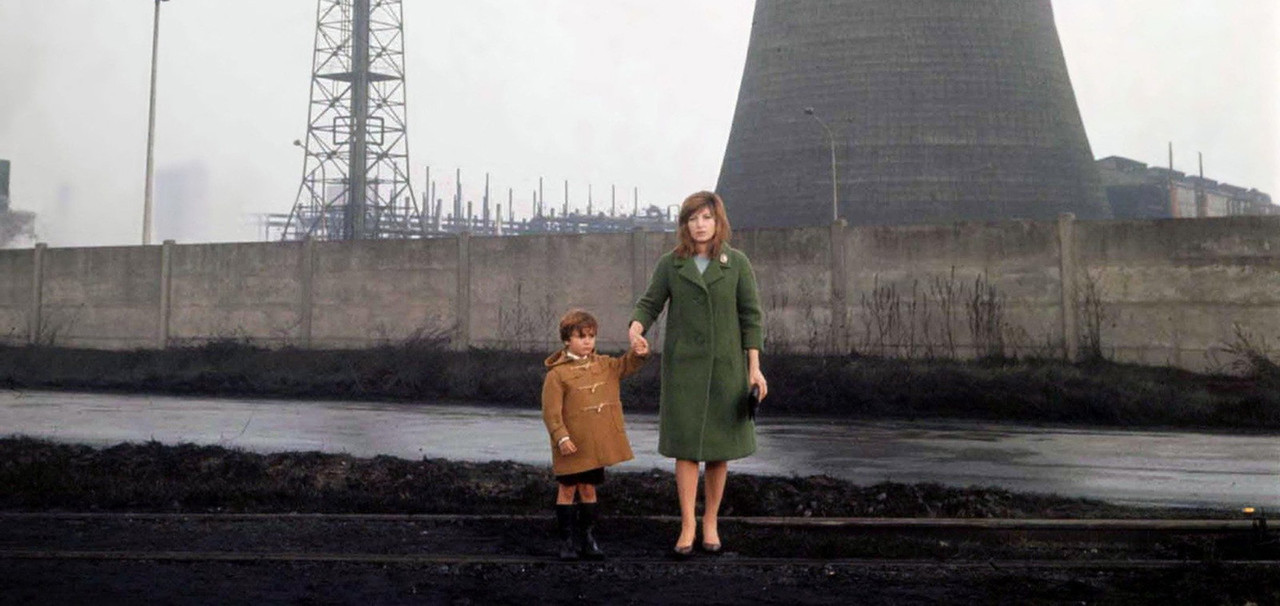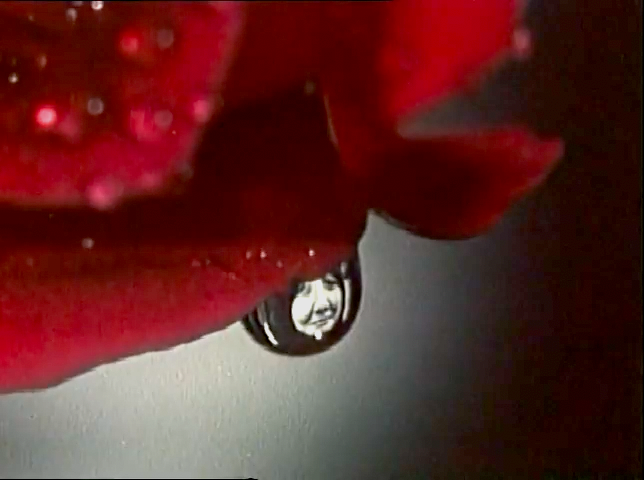“Eight bones has the carpus, five the metacarpus, fourteen the phlanges, all in all, all in all, twenty-seven all in all. Abracadabra.”The Beast with Five Fingers (Robert Florey, 1946)
Aug
15

Hilary Cummins (Peter Lorre). DP: Wesley Anderson.
– Donald Arlington
“The painter takes his time. He doesn't like her dress. He doesn't like her gloves. One day he asks her if she dares pose for him – all in pink. She dares! And the king, enraptured by her pose, offers her a palace!” Lola Montès (Max Ophüls, 1955)
Aug
14
Bavaria

The crowned royal mistress on display in glorious Eastmancolor (via). DP: Christian Matras.
Celebrating Oktoberfest [in September/October] and the Bavarian royals [rip]: a royal character or family*
– circus master
Maria Dolores Porriz y Montez, Countess von Landsfeld, Lola Montès for short, now a circus attraction, once the mistress to Ludwig I, King of Bavaria. While her fellow circus performers play Lola's former lovers, the ringmaster tells her story.
* the Bales 2025 Film Challenge for August is not date-related but lists, for the most part, the colours of the rainbow.
“The city… as if it were unborn. Rising into the sky with fingers of metal, limbs without flesh, girders without stone. Signs hanging without support. Wires dipping and swaying without poles. A city unborn. Flesh dissolved in an acid of light. A city of the dead.”X [The Man with the X-Ray Eyes] (Roger Corman, 1963)
Aug
14

Dr. James Xavier (Ray Milland) performing his mind-reading trick. DP: Floyd Crosby.
– Dr. James Xavier
“Eh, i sogni a volte insegnano male, Dùnya, perché la verità intera non è mai in un solo sogno, la verità intera è in molti sogni.” Il fiore delle mille e una notte [Arabian Nights] (Pier Paolo Pasolini, 1974)
Aug
13
cerulean

The entrance of the Shah Mosque as seen in the film. The seven colours of the tile work are reflected in the extras' costumes. DP: Giuseppe Ruzzolini.
Cerulean, or blue: a building or structure*
One of the many exotic locations is the مسجد شاه, [Masjed-e Shah, or Shah Mosque] in Iran with its otherworldly blue and blue-adjacent tiles.
* the Bales 2025 Film Challenge for August is not date-related but lists, for the most part, the colours of the rainbow.
…und deine Liebe auch [And Your Love Too] (Frank Vogel, 1962)
Aug
13
1961

Eva (Kati Székely). Someone offscreen lits her cigarette. DP: Günter Ost.
Three people must decide what to do on August 13, 1961, the day the Berlin Wall goes up.
– You know, I take pictures, photographs, but I never really thought in black and white before I saw our rushes. Do you know what I mean? You can see the shape of things.
– Life is in colour, but black and white is more realistic.Der Stand der Dinge [The State of Things] (Wim Wenders, 1982)
Aug
13
1942

Friedrich Munro's (Patrick Bauchau) Hollywood, Ca address and date of birth: August 13, 1942. DPs: Henri Alekan, Fred Murphy & Martin Schäfer.
“She'd discovered a small beach far from town, with crystal-clear water and pink sand. She loved that spot. The colors of nature were so beautiful, and there was no noise. She'd leave only when the sun did too.” Il deserto rosso [Red Desert] (Michelangelo Antonioni, 1964)
Aug
12
green

Valerio (Valerio Bartoleschi) and his mother Giuliana (Monica Vitti) in an arid industrial landscape. Giuliana wears a brilliant green coat, its shade between pea and moss, depending on the drabness of her surroundings. DP: Carlo Di Palma.
Green, in food or fashion*
– Giuliana
Antonioni's first film in colour beautifully utilises Vitti's brilliance – of her auburn hair, her porcelain teint, her vivid costumes (by Paola Carloni) – against the drab landscape.
* the Bales 2025 Film Challenge for August is not date-related but lists, for the most part, the colours of the rainbow.
آداب بهاری [Adab-e Bahari / Rites of Spring] (Ali Asghar Agahbanaei, 1982)
Aug
11
spring

In a dewdrop hanging from a rose, the face of a smiling woman appears.
Dita e Verës, a pagan spring celebration from Albania, celebrated in March: a spring scene*
The restless anticipation of spring. Iran as it was before and after the 1979 toppling of the Shah. While the snow melts away, the Revolution takes place, and fresh buds appear on the rose bushes. A poem.
* the Bales 2025 Film Challenge for August is not date-related.
E-clip-se (Chris Marker, 1999)
Aug
11
1999
.png)
A young woman or child at the Jardin des plantes de Paris wears protective glasses while looking up in amazement during the August 11, 1999 solar eclipse, her baguette a vague memory. DP: Chris Marker.
“That's all the people we've got now. We'll get there somehow.” Хлебный день [Khlebnyy den / Bread Day] (Sergei Dvortsevoy, 1998)
Aug
10
green

The old folks pushing the cart past the hamlet's name sign. With thick brush strokes, almost too much for the small rectangle, it reads TOWNSHIP NR. 3. DP: Alisher Khamidkhodzhaev.
Green: a building or structure*
Where the old folks' hands push the cart, the green's worn off. That doesn't change anything about its importance. A lifeline, bread, is delivered once a week and with delivered, it means that the carriage is left on the rails, several kilometers away from Zhikharevo, or Township Nr. 3, which in its turn is about 80 km away from Saint Petersburg. It takes the seniors about two hours to get the wagon to their hamlet. We get to witness ten minutes or so. It lasts a lifetime.
As of 2002, only three people lived in Zhikharevo. I wonder how the wain comes home now.
* the Bales 2025 Film Challenge for August is not date-related but lists, for the most part, the colours of the rainbow.